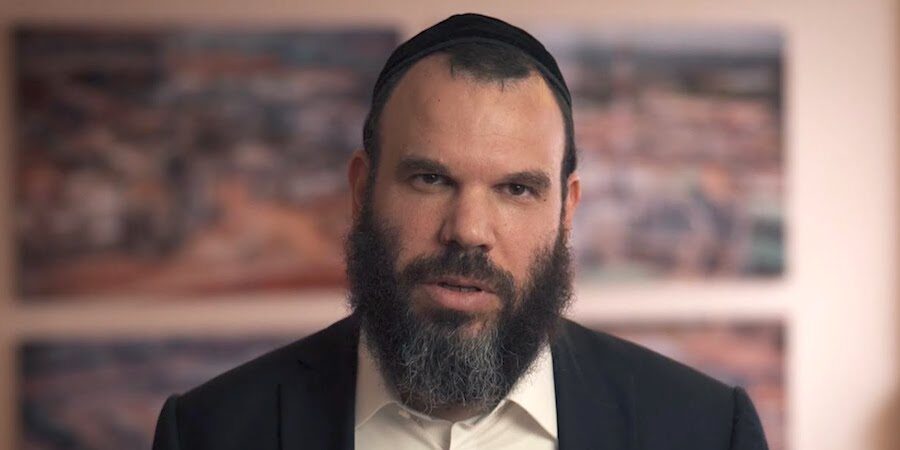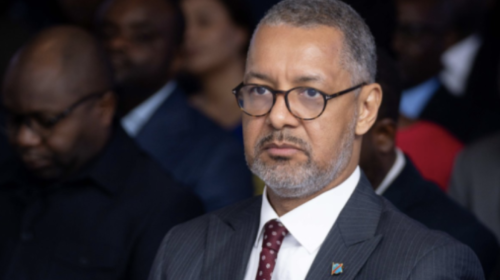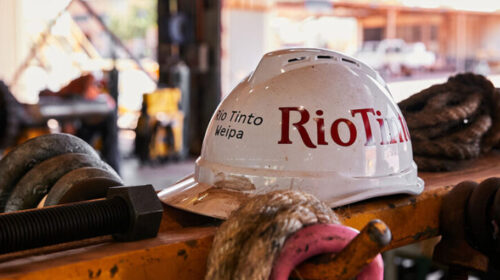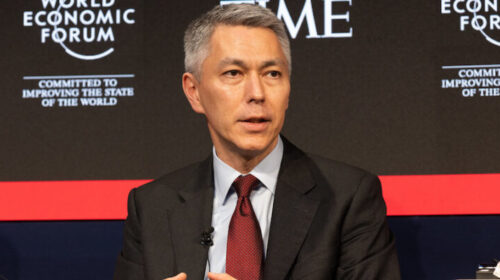Trump eased sanctions on mining tycoon Dan Gertler before leaving
Former US president Donald Trump quietly eased sanctions on Israeli billionaire Dan Gertler, related to alleged corruption and abusive mining practices in the Democratic Republic of Congo, just five days before leaving the White House.
The order, issued on Jan. 15, followed an appeal by lobbyists working for Gertler, including lawyer Alan Dershowitz, who helped represent Trump during his first impeachment, The New York Times reported.
Washington sanctioned Gertler in 2017 under the Global Magnitsky Human Rights Accountability Act, which froze any US assets he held and banned him from dealing in US dollars or with any American entity.
The US Treasury’s reversal of those restrictions means that US institutions can lift asset freezes and transact with both Gertler and 33 of his sanctioned businesses until the end of January 2022.
Anti-corruption groups condemned the move, calling on the administration of President Joe Biden to reverse the decision.
“Letting Dan Gertler off the hook sends a message to the world’s most corrupt businesspeople that the US will let them walk free after a bit of lobbying,” said Sasha Lezhnev, deputy director of policy at The Sentry, a non-profit organization that tracks African war criminals and foreigners who try to profit off them.
TREASURY IMPOSED SANCTIONS ON GERTLER AND SEVERAL OF HIS COMPANIES IN 2017, ACCUSING THE ISRAELI MAGNATE OF USING HIS FRIENDSHIP WITH DRC’S FORMER PRESIDENT KABILA TO SECURE MINING DEALS WORTH BILLIONS OF DOLLARS.
The group Lezhnew leads said on Sunday that US banks should not unblock Gertler’s money or “open accounts or otherwise conduct transactions for or on behalf of Gertler and his network until this matter is fully investigated and resolved.”
Gertler, originally a diamond trader, amassed his fortune mostly by buying mining assets from the DRC state at greatly discounted prices, when his close friend and then President Joseph Kabila was still in office. The billionaire acted as a middleman for sales of mining assets in the country, one of the world’s largest producers of copper and cobalt, making huge profits, according to the US Treasury.
It’s estimated that, between 2010 and 2012 alone, corrupt deals involving Gertler’s companies prevented Congo from getting more than $1.36 billion in revenues.
Gertler, who has always denied any wrongdoing, has exited many of his biggest investments in Congo in the past five years. One of the most notorious deals was the one inked with Glencore (LON: GLEN), through which he sold the Swiss miner his stake in two projects until then held jointly.
Glencore, however, continues to pay Gertler royalties he retained following the sale, but it does so in euros rather than dollars to avoid US sanctions. The Swiss company has said the move sought to keep its access to valuable mining assets and lowered the risk of disruption to copper and cobalt supplies.
Glencore itself is the focus of a US Department of Justice’s probe into possible corruption and money laundering in a few jurisdictions, including the DRC.
Another one bit the dust
News of the Trump’s reprieve granted to Gertler come on the heels of another major case of mining bribery in Africa, which has ended with a jail sentence.
Israeli diamond and minerals magnate Beny Steinmetz was found guilty last week of bribing a public official to secure mining rights to Simandou, a massive iron ore deposit in Guinea.
The 64-year-old, who denies all charges, was sentenced to five years in prison in a Geneva court Friday. Steinmetz and two colleagues were convicted of paying bribes of $8.5 million to Mamadie Toure, the wife of Guinea’s deceased former president Lansana Conte to help secure rights to the Simandou.
Steinmetz’s investments in African mining have courted controversy and prompted multiple investigations, but last week’s is the first conviction ever received by either the tycoon or its mining arm — Beny Steinmetz Group Resources (BSGR).
![]()





